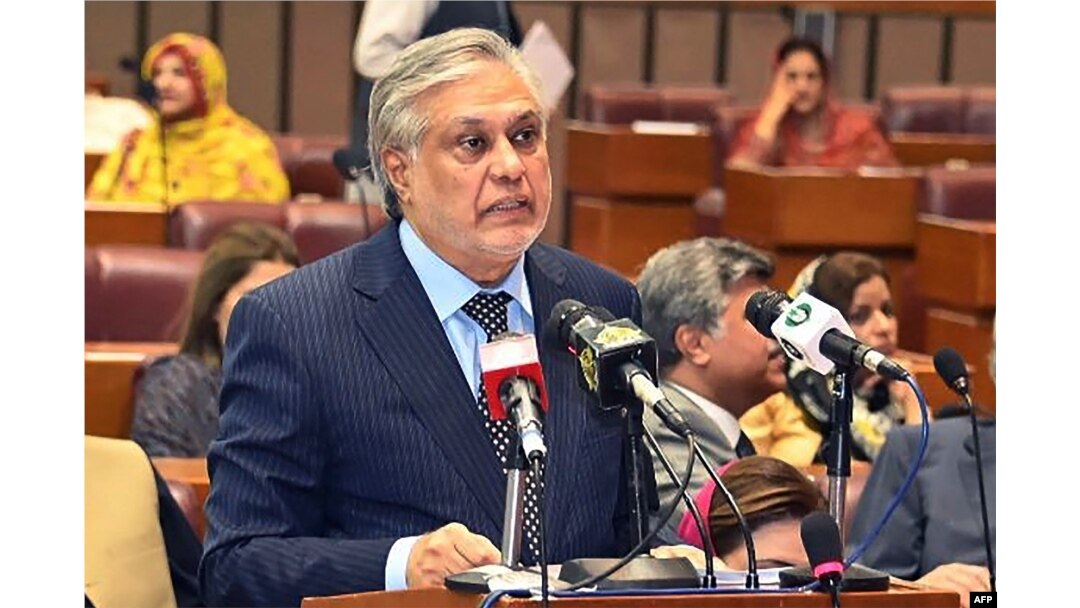Pakistan said Thursday the International Monetary Fund had transferred $1.2 billion to its central bank as the first tranche of a $3 billion bailout program for the cash-starved nation.
Finance Minister Ishaq Dar made the televised announcement a day after the global lender's executive board approved the much-awaited program to help Pakistan address its short-term acute balance of payments crisis and avert a potential default.
The IMF said Wednesday that the remaining $1.8 billion would be phased in over the program's duration, spread over nine months, and subject to two quarterly reviews.
The IMF and Prime Minister Shehbaz Sharif's government agreed to the bailout plan on June 29 following eight months of talks and delays. It unlocked financing from friendly countries and multilateral sources that had withheld loans until Pakistan clinched the deal.

FILE - Pakistan's Finance Minister Ishaq Dar speaks in the national assembly in Islamabad, June 9, 2023, in this handout photograph taken by the Pakistan National Assembly.
Dar said Thursday the first tranche from the IMF program and loan deposits from other countries would shore up Pakistan's foreign exchange reserves by the end of the week.
"I expect that our foreign exchange reserves will close at $13 billion to $14 billion on Friday, July 14," the finance minister said.
In the run-up to Wednesday's IMF approval, Saudi Arabia and the United Arab Emirates each deposited short-term loans of $2 billion and $1 billion, respectively, with Pakistan's central bank to support foreign exchange reserves.
Close ally China recently rolled over about $5 billion of Pakistan's loan.
Pakistan's foreign exchange reserves dwindled to about $4 billion a week ago, barely enough to buy a few weeks' worth of controlled imports as opposed to the IMF-mandated three months of cover.
Families across the impoverished South Asian nation of about 230 million are struggling to cope with ever-eroding buying power due to increasing inflation.
The IMF noted on Wednesday the loan arrangement with Pakistan had come at a challenging economic juncture for the country.
"A difficult external environment, devastating floods, and policy missteps have led to large fiscal and external deficits, rising inflation, and eroded reserve buffers" in the fiscal year 2023, the global lender said.
It underscored that the bailout would require Pakistan to implement "greater fiscal discipline, a market-determined exchange rate to absorb external pressures, and further progress on reforms related to the energy sector, climate resilience, and the business climate."


